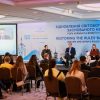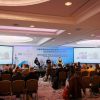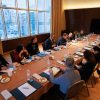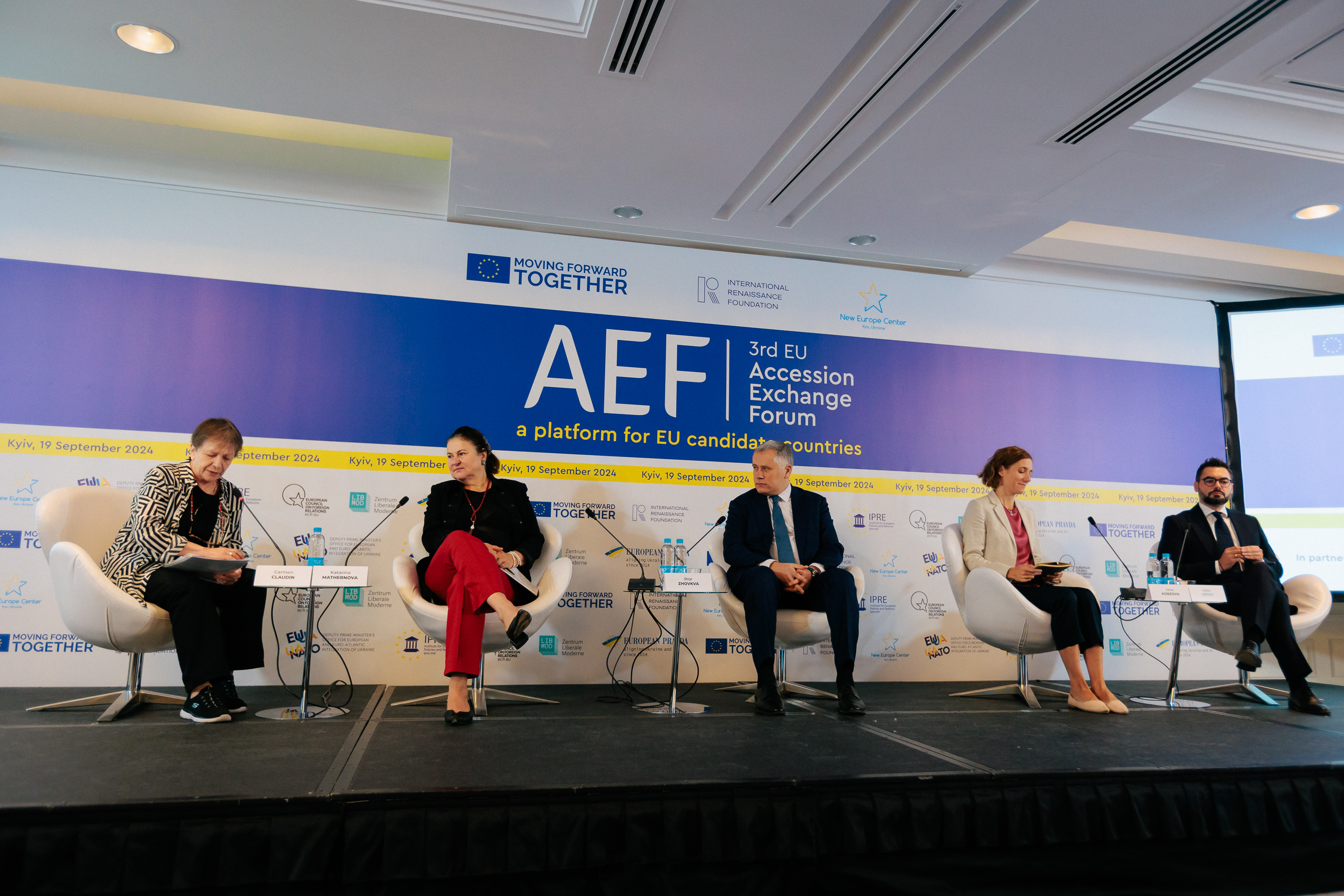
We bring to your attention the key messages of the speakers from the Session 1 EU’s geopolitical enlargement is back. Can it deliver? during the 3rd EU Accession Exchange Forum:
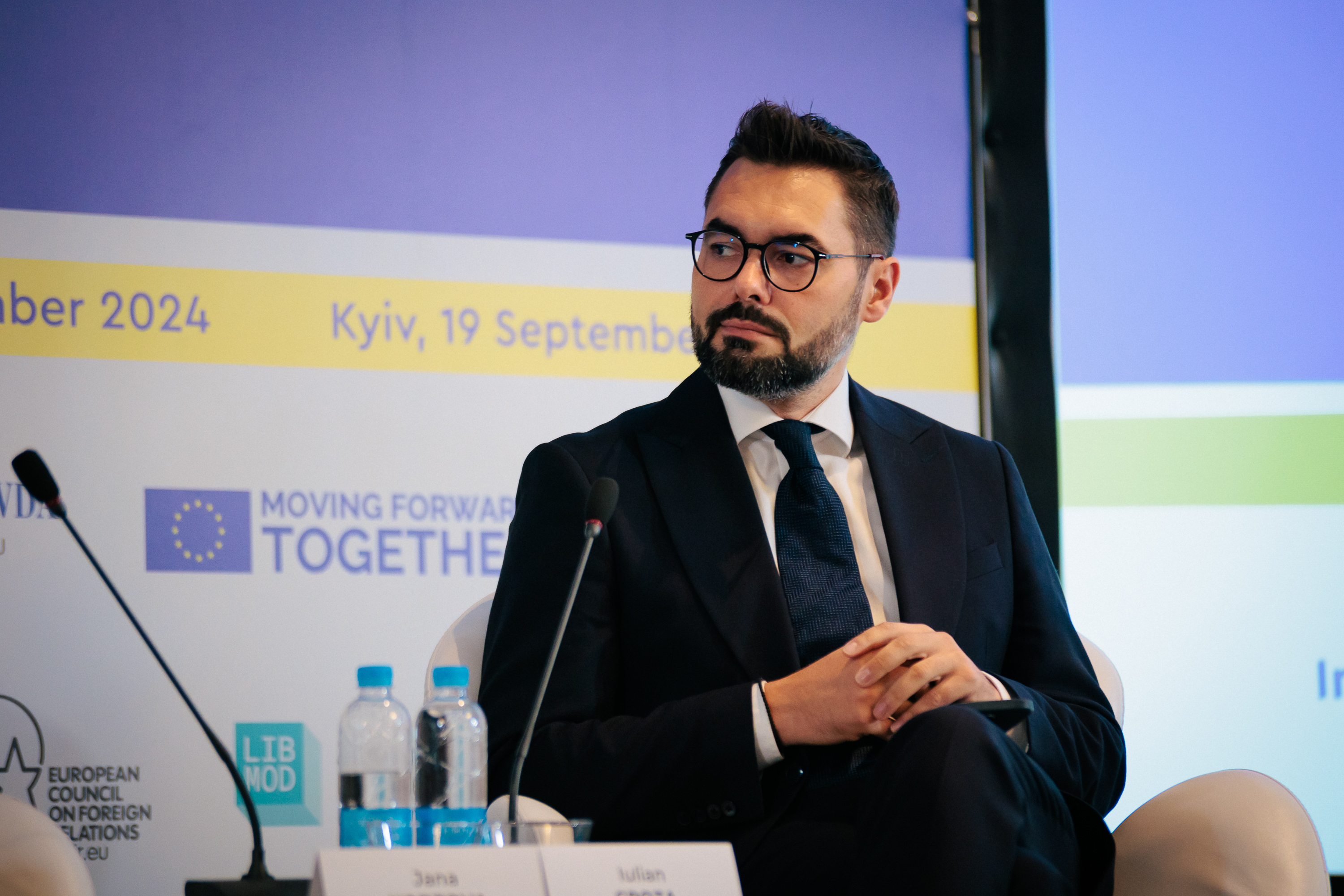
Iulian Groza, Director, Institute for European Policies and Reforms (IPRE), Moldova, member of the Supreme Security Council of Moldova:
EU geopolitical posture always delivered, whenever EU has taken seriously its geopolitical role. Enlargement was always an answer to the war. And we have seen that EU took its role more seriously. It’s also because it’s the internal EU security.
When we see statements by the President von der Leyen mentioning that this Commission will be a Commission of enlargement, a Commission that will be ready to accept new members, it is another confirmation that the EU takes its geopolitical role of enlargement very seriously today. So it’s really much about us, the candidate countries, whether we can deliver and whether we understand what an important geopolitical momentum it is for us.
EU enlargement without NATO membership is a challenge. But it is also a challenge because EU enlargement and NATO enlargement are independent. The processes are not interlinked. The EU has its own policy and NATO enlargement has its own policy.
For countries like Moldova, if Ukraine joins NATO, NATO enlargement for Moldova will be an issue of time. At the same time, in Moldova, the support for NATO accession has been increasing over the last two years and a half. And that was basically a response to reality on the ground. People started to understand and realize that being neutral is not protecting you from an aggressor like Russia.
If we talk about the linkage between EU and NATO, NATO accession is not the guarantee for the EU enlargement. The majority of Western Balkans countries, who have been candidates for years to join the EU, have joined NATO, but not the EU. As I have mentioned, we all have to work, but the bottom line for the NATO and the EU is security and defence. Today, we see that EU starts to seriously look into defence policy, but also, with small steps, moving towards understanding that security and defence should become on the criteria for the EU enlargement.
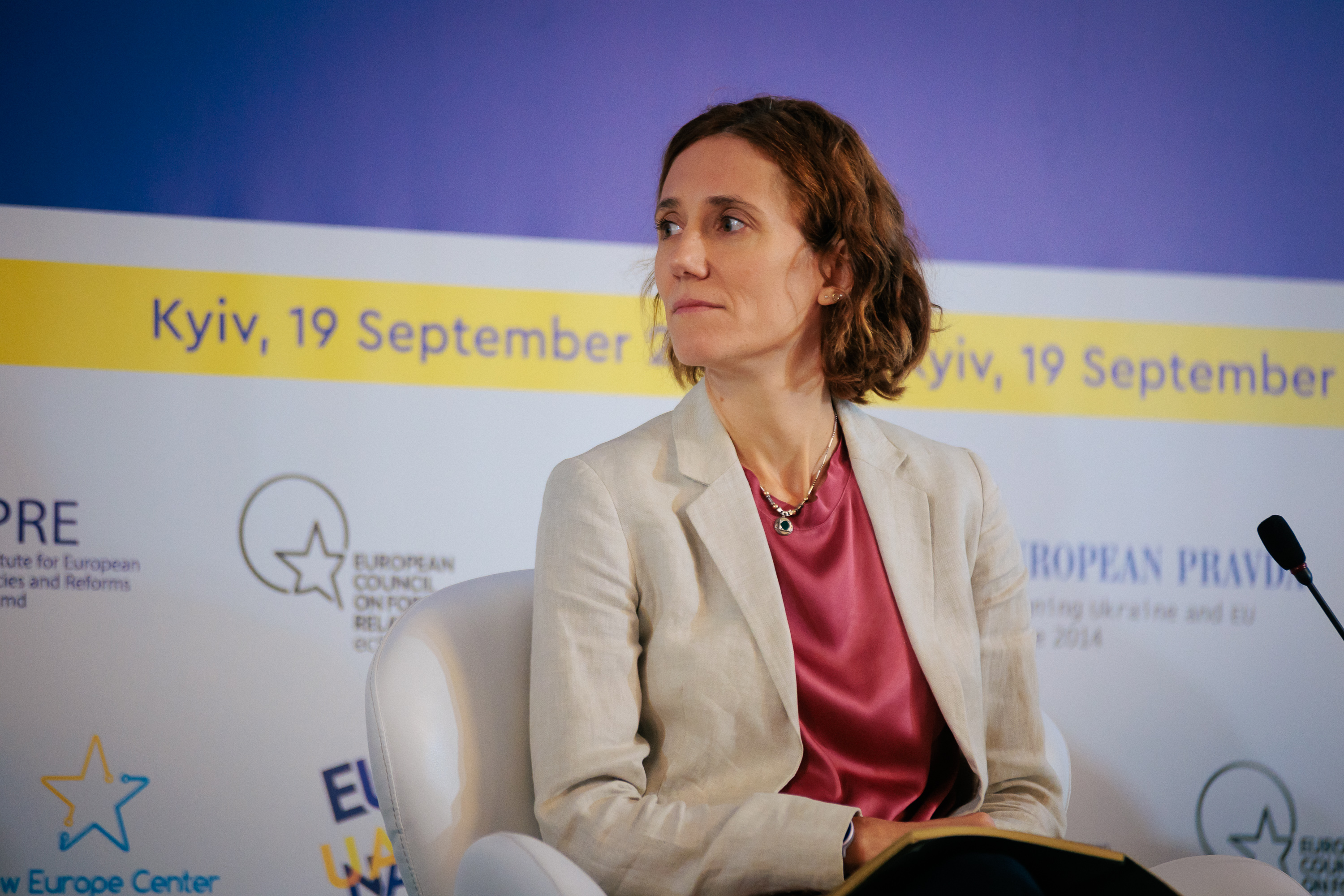
Jana Kobzova, ECFR Fellow, Former Diplomatic Adviser to Slovak President:
If Ukraine has proven one thing, it’s not just that it’s superhuman in being able to resist a bigger neighbor; it’s also capable of mending and bending time. Time flies differently in Kyiv, everything is accelerated. But you have managed to export it into the EU, you really do faster decisions.
The decision in 2022 to enlarge is heralded as a big geopolitical decision for the European Union. However, the decisions to enlarge were always geopolitical. That doesn’t mean that the process is going to be as such. It’s also going to be merit-based. That’s something that politics cannot trick, but it can help accelerate. And I think this is where Ukraine gets the balance right.
There are a lot of things the European Union needs to do to be able to absorb new countries. It’s not an excuse for non-enlargement, but it should be part of conversation about accession. You don’t want to enter a small United Nations, you want to enter an entity that’s capable of making bold and right decisions, not just decisions based on the lowest common denominator. This conversation needs to happen in parallel with the enlargement process.
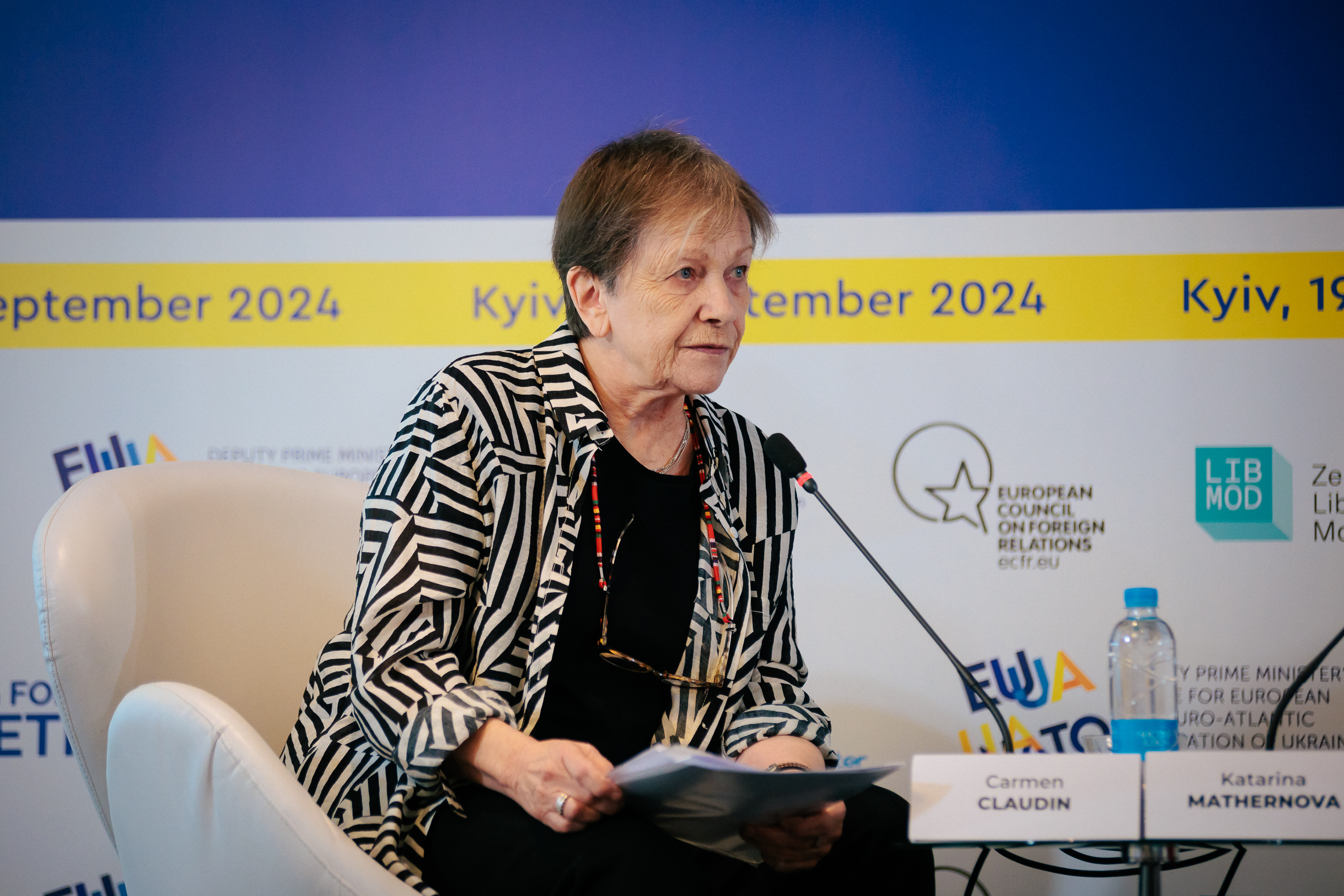
Moderator – Carmen Claudin, Associate Senior Researcher, Barcelona Centre for International Affairs (CIDOB):
We must ask ourselves whether real political actors these are the national member states and their public opinion, can deliver now that the war has pushed us, the EU, outside of our comfort zone into this current political movement. We are supposed to be the transformative power. The war is obliging us to change and in many ways to reinvent ourselves.
One can say that Ukraine has transformed us. So, for me it’s not enough to call on Ukraine, Moldova or Bosnia to do their homework to qualify. It is necessary of course, but it’s not enough. We, member states, also have to deliver if we want to qualify for this new geopolitical moment.
I cannot see how NATO enlargement can be taken out of the equation, even more so since security is now Ukraine’s top priority and our top priority. And in the perspective of the end of the war, which is going to be before the EU enlargement will happen, I think it’s time to consider and to ask ourselves, whether we should not facilitate NATO enlargement before the EU membership, before the EU enlargement, as it was the case for Central European countries.
You can find the key messages of Ihor Zhovkva, Deputy Head of the President’s Office, Diplomatic adviser to the President of Ukraine, here and Katarina Maternova, EU Ambassador to Ukraine, here.
Video recording of the Forum is available here.
PHOTO report of the Forum is here.
The EU Accession Exchange Forum is organized by the New Europe Center in partnership with the Office of the Deputy Prime Minister of European and Euro-Atlantic Integration of Ukraine, the International Renaissance Foundation, the European Council on Foreign Relations, the Institute for European Policies and Reforms, the Center for Liberal Modernity and the European Pravda. The EU Accession Exchange Forum is taking place with EU support, within the EU-funded “European Renaissance of Ukraine” project implemented by the International Renaissance Foundation.
New Europe Center is greatful for wide media support of the Forum to informational agency UKRINFORM.



